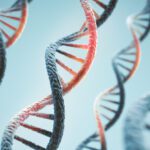Within the NWA programme Electrochemical Conversion and Materials (ECCM), NWO has awarded funding to three proposals from consortia of researchers, companies and civil society partners from the Netherlands and abroad. The collaborating partners will investigate the transition to a CO2-neutral industry, based on sustainable energy generation, storage and conversion.
The aim of the programme is to strengthen the knowledge base of the ECCM field through fundamental and applied research. In this programme, the Knowledge and Innovation Covenant and the Dutch Research Agenda come together to contribute to the energy transition by means of research.
Awarded projects:
Creating the flexible electrochemical plant of the future
Future plants producing chemicals and fuels will make use of low‐cost renewable and carbon‐free energy. However, this energy source is only available on intermittent basis while conventional plants are operated continuously. The proposed research will investigate the fundamental changes needed so future plants have the flexibility to follow renewable energy‐profiles.
Main applicant: prof. dr. ir. J.R. (Ruud) van Ommen – TU Delft
Consortium partners: Eindhoven University of Technology, Proton Ventures, Global Solutions International B.V., Vattenfall Energy, SmartPort, Institute for Sustainable Process Technology, Shell Global Solutions International B.V.
A sustainable way using an electrocatalytic process
The reserachers propose to make hydrogenperoxide, a 5 million ton/year bulk chemical, in a sustainable way using an electrocatalytic process. Fundamental and applied research in the fields of electrocatalysis, membrane science and system integration will go hand in hand to arrive at system which can operate under industrially relevant conditions.
Main applicant: prof. dr. J.H. (Harry) Bitter – Wageningen University & Research
Consortium partners: Wageningen Food & Biobased Research, Universiteit Twente, Solvay
Next generation of water electrolysers
Energy storage will play a pivotal role in future low‐carbon energy systems, balancing intermittent supply with demand .Hydrogen production via water electrolysis, is an attractive approach due to long‐term storability. SCALE project addresses the challenges of energy affordability, sustainability and security by bringing emerging‐materials and electrode‐architectures to industrially relevant conditions.
Main applicant: dr. M. (Michail) Tsampas – DIFFER: Dutch Institute For Fundamental Energy Research
Consortium partners: Eindhoven University of Technology, Fontys University of Applied Sciences, FORTH, Syngaschem, Institute for Sustainable Process Technology, VSPARTICLE BV, VECO, Institute of Chemical Engineering Sciences, Greece, Toyota Motor Europe
Source: Dutch Research Council
More information about Electrochemical Conversion & Materials (ECCM)




